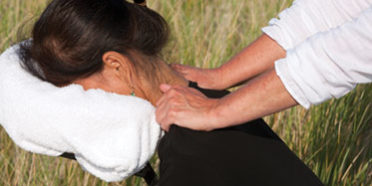Massage is no longer an extravagant luxury only for movie stars or rich people who want to pamper themselves. I would argue that massage is something we should all add to our lives as part of a health and wellness regimen much like exercise and eating well. With health costs soaring through the roof, why would you not add such a pleasant experience to your health regimen if you knew it would have a positive effect on your health?
There has been growing interest in the scientific community in the last 10 years looking at the benefits of massage. Massage has been widely touted as a great way to relax and reduce stress but now there is more evidence that massage is good for your health. Research over the past couple of years has found that massage therapy boosts immune function, helps the body release endorphins (feel good hormones), reduces the level of cortisol, a stress hormone, in the blood, decreases cytokine proteins related to inflammation and allergic reactions, and boosts white blood cells that help to fight infection. Muscles rejuvenate better with a massage after exercise by increasing blood flow and removing the lactic acid that causes sore, achy muscles. Massage helps to reduce the toxins that build up in the body caused by the foods we eat, the stress, and even the air we breathe.
From a 2012 article in the Wall Street Journal by Andrea Peterson:
In a small study published in the journal Science Translational Medicine last month, a 10-minute massage promoted muscle recovery after exercise. In the study, 11 young men exercised to exhaustion and then received a massage in one leg. Muscle biopsies were taken in both quad muscles before exercise, after the massage and 2½ hours later.
The short massage boosted the production of mitochondria, the energy factory of the cell, among other effects. “We’ve shown this is something that has a biological effect,” says Mark Tarnopolsky, a co-author of the study and a professor of pediatrics and medicine at McMaster University Medical Center in
Hamilton, Ontario.
A 2010 study with 53 participants comparing the effects of one 45-minute Swedish massage to light touch, found that people who got a massage had a large decrease in arginine-vasopressin, a hormone that normally increases with stress and aggressive behavior, and slightly lower levels of cortisol, a stress hormone, in their blood after the session. There was also a decrease in cytokine proteins related to inflammation and allergic reactions.
Mark Hyman Rapaport, the lead author of the study and the chairman of psychiatry and behavioral science at the Emory University School of Medicine in Atlanta, says he began studying massage because, “My wife liked massages and I wasn’t quite sure why. I thought of it as an extravagance, a luxury for only people who are very rich and who pamper themselves.” Now, Dr. Rapaport says he gets a massage at least once a month. His group is now studying massage as a treatment for generalized anxiety disorder.








